In Memory of Frank Brandon(1965)By Toot:
CLASS OF 1972

Rosa Fort High SchoolClass of 1972
Tunica, MS
In Memory of Frank's Story
I think everyone would enjoy reading this speech. So here it is. It's not about me. But it's about a man that gave everything that he had, I mean, even his life. I have a Dream
by Martin Luther King, Jr.
Delivered on the steps
at the Lincoln Memorial in Washington D.C.
on August 28, 1963
Five score years ago, a great American, in whose symbolic
shadow we stand signed the Emancipation Proclamation.
This momentous decree came as a great beacon light of hope
to millions of Negro slaves who had been seared in the flames
of withering injustice. It came as a joyous daybreak
to end the long night of captivity.
But one hundred years later, we must face the tragic fact
that the Negro is still not free. One hundred years later,
the life of the Negro is still sadly crippled by the manacles of segregation
and the chains of discrimination. One hundred years later,
the Negro lives on a lonely island of poverty in the midst of
a vast ocean of material prosperity. One hundred years later,
the Negro is still languishing in the corners of American society
and finds himself an exile in his own land.
So we have come here today to dramatize an appalling condition.
In a sense we have come to our nation's capital to cash a check.
When the architects of our republic wrote the magnificent words
of the Constitution and the declaration of Independence,
they were signing a promissory note to which every American was to fall heir.
This note was a promise that all men would be guaranteed
the inalienable rights of life, liberty, and the pursuit of happiness.
It is obvious today that America has defaulted on this promissory note
insofar as her citizens of color are concerned. Instead of honoring this sacred obligation,
America has given the Negro people a bad check
which has come back marked "insufficient funds."
But we refuse to believe that the bank of justice is bankrupt.
We refuse to believe that there are insufficient funds in the great vaults
of opportunity of this nation. So we have come to cash this check --
a check that will give us upon demand the riches of freedom
and the security of justice. We have also come to this hallowed spot
to remind America of the fierce urgency of now.
This is no time to engage in the luxury of cooling off
or to take the tranquilizing drug of gradualism.
Now is the time to rise from the dark and desolate valley of segregation
to the sunlit path of racial justice. Now is the time to
open the doors of opportunity to all of God's children.
Now is the time to lift our nation from the quicksands of racial injustice
to the solid rock of brotherhood.
It would be fatal for the nation to overlook the urgency of the moment
and to underestimate the determination of the Negro.
This sweltering summer of the Negro's legitimate discontent will not pass
until there is an invigorating autumn of freedom and equality.
Nineteen sixty-three is not an end, but a beginning.
Those who hope that the Negro needed to blow off steam
and will now be content will have a rude awakening
if the nation returns to business as usual.
There will be neither rest nor tranquility in America
until the Negro is granted his citizenship rights.
The whirlwinds of revolt will continue to shake
the foundations of our nation until the bright day of justice emerges.
But there is something that I must say to my people who stand
on the warm threshold which leads into the palace of justice.
In the process of gaining our rightful place we must not be guilty of wrongful deeds.
Let us not seek to satisfy our thirst for freedom
by drinking from the cup of bitterness and hatred.
We must forever conduct our struggle on the high plane of dignity and discipline.
We must not allow our creative protest to degenerate into physical violence.
Again and again we must rise to the majestic heights
of meeting physical force with soul force.
The marvelous new militancy which has engulfed the Negro community
must not lead us to distrust of all white people, for many of our white brothers,
as evidenced by their presence here today, have come to realize that
their destiny is tied up with our destiny and
their freedom is inextricably bound to our freedom.
We cannot walk alone.
And as we walk, we must make the pledge that we shall march ahead.
We cannot turn back. There are those who are asking the devotees of civil rights,
"When will you be satisfied?" We can never be satisfied as long as our bodies,
heavy with the fatigue of travel,
cannot gain lodging in the motels of the highways and the hotels of the cities.
We cannot be satisfied as long as the Negro's basic mobility
is from a smaller ghetto to a larger one. We can never be satisfied
as long as a Negro in Mississippi cannot vote and
a Negro in New York believes he has nothing for which to vote.
No, no, we are not satisfied, and we will not be satisfied
until justice rolls down like waters and righteousness like a mighty stream.
I am not unmindful that some of you have come here out of great trials and tribulations.
Some of you have come fresh from narrow cells.
Some of you have come from areas where your quest for freedom
left you battered by the storms of persecution
and staggered by the winds of police brutality.
You have been the veterans of creative suffering.
Continue to work with the faith that unearned suffering is redemptive.
Go back to Mississippi, go back to Alabama, go back to Georgia,
go back to Louisiana, go back to the slums and ghettos of our northern cities,
knowing that somehow this situation can and will be changed.
Let us not wallow in the valley of despair.
I say to you today, my friends,
that in spite of the difficulties and frustrations of the moment,
I still have a dream. It is a dream deeply rooted in the American dream.
I have a dream that one day this nation
will rise up and live out the true meaning of its creed:
"We hold these truths to be self-evident: that all men are created equal."
I have a dream that one day on the red hills of Georgia the sons of former slaves
and the sons of former slaveowners
will be able to sit down together at a table of brotherhood.
I have a dream that one day even the state of Mississippi, a desert state,
sweltering with the heat of injustice and oppression,
will be transformed into an oasis of freedom and justice.
I have a dream that my four children will one day live in a nation
where they will not be judged by the color of their skin
but by the content of their character.
I have a dream today.
I have a dream that one day the state of Alabama,
whose governor's lips are presently dripping
with the words of interposition and nullification,
will be transformed into a situation
where little black boys and black girls
will be able to join hands with little white boys and white girls
and walk together as sisters and brothers.
I have a dream today.
I have a dream that one day every valley shall be exalted,
every hill and mountain shall be made low,
the rough places will be made plain,
and the crooked places will be made straight,
and the glory of the Lord shall be revealed, and all flesh shall see it together.
This is our hope. This is the faith with which I return to the South.
With this faith we will be able to hew out of the mountain of despair a stone of hope.
With this faith we will be able to transform the jangling discords of our nation
into a beautiful symphony of brotherhood. With this faith we will be able
to work together, to pray together, to struggle together, to go to jail together,
to stand up for freedom together, knowing that we will be free one day.
This will be the day when all of God's children will be able to sing with a new meaning,
"My country, 'tis of thee, sweet land of liberty, of thee I sing.
Land where my fathers died, land of the pilgrim's pride,
from every mountainside, let freedom ring."
And if America is to be a great nation this must become true.
So let freedom ring from the prodigious hilltops of New Hampshire.
Let freedom ring from the mighty mountains of New York.
Let freedom ring from the heightening Alleghenies of Pennsylvania!
Let freedom ring from the snowcapped Rockies of Colorado!
Let freedom ring from the curvaceous peaks of California!
But not only that; let freedom ring from Stone Mountain of Georgia!
Let freedom ring from Lookout Mountain of Tennessee!
Let freedom ring from every hill and every molehill of Mississippi.
From every mountainside, let freedom ring.
When we let freedom ring, when we let it ring from every village and every hamlet,
from every state and every city, we will be able to speed up that day
when all of God's children, black men and white men,
Jews and Gentiles, Protestants and Catholics,
will be able to join hands and sing in the words of the old Negro spiritual,
"Free at last! free at last! thank God Almighty, we are free at last!"
Martin Luther King, Jr. was born at noon Tuesday, January 15, 1929, at the family home, 501 Auburn Avenue, N.E., Atlanta, Georgia. Dr. Charles Johnson was the attending physician. Martin Luther King, Jr., was the first son and second child born to the Reverend Martin Luther King, Sr., and Alberta Williams King. Other children born to the Kings were Christine King Farris and the late Reverend Alfred Daniel Williams King. Martin Luther King's maternal grandparents were the Reverend Adam Daniel Williams, second pastor of Ebenezer Baptist, and Jenny Parks Williams. His paternal grandparents, James Albert and Delia King, were sharecroppers on a farm in Stockbridge,...Expand for more
Georgia.
He married the former Coretta Scott, younger daughter of Obadiah and Bernice McMurray Scott of Marion, Alabama on June 18, 1953. The marriage ceremony took place on the lawn of the Scott's home in Marion. The Reverend King, Sr., performed the service, with Mrs. Edythe Bagley, the sister of Mrs. King, maid of honor, and the Reverend A.D. King, the brother of Martin Luther King, Jr., best man.
Four children were born to Dr. and Mrs. King: Yolanda Denise (November 17, 1955 Montgomery, Alabama) Martin Luther III (October 23, 1957 Montgomery, Alabama) Dexter Scott (January 30, 1961 Atlanta, Georgia) Bernice Albertine (March 28, 1963 Atlanta, Georgia) Education
Martin Luther King, Jr. began his education at the Yonge Street Elementary School in Atlanta, Georgia. Following Yonge School, he was enrolled in David T. Howard Elementary School. He also attended the Atlanta University Laboratory School and Booker T. Washington High School. Because of his high score on the college entrance examinations in his junior year of high school, he advanced to Morehouse College without formal graduation from Booker T. Washington. Having skipped both the ninth and twelfth grades, Dr. King entered Morehouse at the age of fifteen. "A Comparison of God in the Thinking of Paul Tillich and Henry Wieman," was completed in 1955, and the Ph.D. degree was awarded on June 5, 1955.
Honorary Degree
Dr. King was awarded honorary degrees from numerous colleges and universities in the United States and several foreign countries. They include the following:
1957
Doctor of Human Letters, Morehouse College Doctor of Laws, Howard University Doctor of Divinity, Chicago Theological Seminary 1958
Doctor of Laws, Morgan State College Doctor of Humanities, Central State College 1959
Doctor of Divinity, Boston University 1961
Doctor of Laws, Lincoln University Doctor of Laws, University of Bridgeport 1962
Doctor of Civil Laws, Bard College 1963
Doctor of Letters, Keuka College 1964
Doctor of Divinity, Wesleyan College Doctor of Laws, Jewish Theological Seminary Doctor of Laws, Yale University Doctor of Divinity, Springfield College 1965
Doctor of Laws, Hofstra University Doctor of Human Letters, Oberlin College Doctor of Social Science, Amsterdam Free University Doctor of Divinity, St. Peter's College 1967
Doctor of Civil Law, University of New Castle Upon Tyne Doctor of Laws, Grinnell College, Grinnell, Iowa Martin Luther King entered the Christian ministry and was ordained in February 1948 at the age of nineteen at Ebenezer Baptist Church, Atlanta, Georgia. Following his ordination, he became Assistant Pastor of Ebenezer. Upon completion of his studies at Boston University, he accepted the call of Dexter Avenue Baptist Church, Montgomery, Alabama. He was the pastor of Dexter Avenue from September 1954 to November 1959, when he resigned to move to Atlanta to direct the activities of the Southern Christian Leadership Conference. From 1960 until his death in 1968, he was co-pastor with his father at Ebenezer Baptist Church and President of the Southern Christian Leadership Conference.
Dr. King was a pivotal figure in the Civil Rights Movement. He was elected president of the Montgomery Improvement Association, the organization which was responsible for the successful Montgomery Bus Boycott from 1955 to 1956 (381 days). He was arrested thirty times for his participation in civil rights activities. He was a founder and president of Southern Christian Leadership Conference from 1957 to 1968. He was also vice president of the national Sunday School and Baptist Teaching Union Congress of the National Baptist Convention. He was a member of several national and local boards of directors and served on the boards of trustees of several institutions and agencies. Dr. King was elected to membership in several learned societies including the prestigious American Academy of Arts and Sciences.
Awards
Dr. King received several hundred awards for his leadership in the Civil Rights Movement.
Among them were:
Selected one of the most outstanding personalities of the year by Time, 1957. Listed in Who's Who in America, 1957. the Spingarn Medal from NAACP, 1957. The Russwurm Award from the National Newspaper Publishers, 1957. The Second Annual Achievement -- The Guardian Association of the Police Department of New York, 1958. Link Magazine of New Dehli, India, listed Dr. King as one of the sixteen world leaders who had contributed most to the advancement of freedom during 1959. Named Man of the Year by Time, 1963. Named American of the Decade by Laundry, Dry Cleaning, and Die Workers International Union, 1963. The John Dewey Award, from the United Federation of Teachers, 1964. The John F. Kennedy Award, from the Catholic Interracial Council of Chicago, 1964. The Nobel Peace Prize in 1964. At age 35, Dr. King was the youngest man, the second American, and the third black man awarded the Nobel Peace Prize. The Marcus Garvey Prize for Human Rights, presented by the Jamaican Government. (posthumously) 1968. The Rosa L. Parks Award, presented by the Southern Christian Leadership Conference. (posthumously) 1968.
The preceding awards and others, along with numerous citations, are in the Archives of the Martin Luther King, Center for Nonviolent Social Change, Inc. in Atlanta, Georgia.
Publications
Martin Luther King, Jr. Sources in the LSU Libraries.
Dr. Martin Luther King, Jr. was a vital personality of the modern era. His lectures and remarks stirred the concern and sparked the conscience of a generation; the movements and marches he led brought significant changes in the fabric of American life; his courageous and selfless devotion gave direction to thirteen years of civil rights activities; his charismatic leadership inspired men and women, young and old, in the nation and abroad.
Dr. King's concept of somebodiness gave black and poor people a new sense of worth and dignity. His philosophy of nonviolent direct action, and his strategies for rational and non-destructive social change, galvanized the conscience of this nation and reordered its priorities. The Voting Rights Act of 1965, for example, went to Congress as a result of the Selma to Montgomery march. His wisdom, his words, his actions, his commitment, and his dreams for a new cast of life, are intertwined with the American experience.
Dr. King's speech at the march on Washington in 1963, his acceptance speech of the Nobel Peace Prize, his last sermon at Ebenezer Baptist Church, and his final speech in Memphis are among his most famous utterances (I've Been to the Mountaintop). The Letter from Birmingham Jail ranks among the most important American documents.
Select Achiever Abdul-Jabbar, Kareem Albee, Edward Albright, Tenley Ambrose, Stephen E. Andrews, Julie Angelou, Maya Ballard, Robert D. Bannister, Roger Barak, Ehud Berners-Lee, Timothy Berra, Yogi Bezos, Jeffrey P. Bhutto, Benazir Borlaug, Norman E. Bradlee, Benjamin C. Brin, Sergey Brown, J. Carter Brown, Willie L., Jr. Bush, George H.W. Butcher, Susan Cameron, James Carson, Benjamin S. Carter, Jimmy Case, Stephen M. Cash, Johnny Cole, Johnnetta B. Collins, Francis S. Cooley, Denton A. Coppola, Francis Ford Crow, Sheryl DeBakey, Michael E. de Havilland, Olivia Dell, Michael S. Didion, Joan Donaldson, Sam Dove, Rita Earle, Sylvia Eisner, Michael D. ElBaradei, Mohamed Elion, Gertrude B. Ellison, Lawrence J. Ephron, Nora Erving, Julius Farrell, Suzanne Field, Sally Folkman, Judah Foote, Shelby Friedman, Milton Fuentes, Carlos Gaines, Ernest J. Gearhart, John D. Gehry, Frank O. Gell-Mann, Murray Giuliani, Rudolph W. Goldberg, Whoopi Goldin, Daniel S. Gonzales, Alberto R. Goodwin, Doris Kearns Gorbachev, Mikhail S. Grisham, John Halberstam, David Hamill, Dorothy Hamilton, Scott Hillary, Sir Edmund Ho, David Hosseini, Khaled Howard, Ron Hume, John Irons, Jeremy Irving, John Jackson, Peter Johanson, Donald C. Johnson, Frank M. Johnson, Philip Jones, Chuck Jones, James Earl Jones, Quincy Judd, Naomi Karzai, Hamid Kennedy, Anthony M. Kim, Jeong H. Kimsey, James V. King, B. B. King, Coretta Scott King, Larry Kolff, Willem J. Kravis, Henry R. Kristof, Nicholas D. Krzyzewski, Mike Kuralt, Charles Leakey, Meave Leakey, Richard Lederman, Leon Lewis, John R. Lin, Maya Lucas, George Mailer, Norman MacCready, Paul D. Manning, Peyton Marsalis, Wynton Marshall, Barry Mayr, Ernst Mays, Willie McCaw, Craig O. McCourt, Frank McCullough, David Merwin, W.S. Michener, James A. Mineta, Norman Y. Mitchell, George J. Momaday, N. Scott Musgrave, Story Nader, Ralph Nitze, Paul H. Novello, Antonia Nunn, Trevor Oates, Joyce Carol Omidyar, Pierre Page, Larry Parks, Rosa Parks, Suzan-Lori Pauling, Linus Peres, Shimon Powell, Colin L. Prince, Harold Rather, Dan Richards, Lloyd Ride, Sally Rollins, Sonny Rozelle, Pete Russell, Bill Salk, Jonas Scholder, Fritz Schuller, Robert H. Schultes, Richard E. Schwarzkopf, H. Norman Schwarzman, Stephen A. Seaborg, Glenn T. Sexton, John Shephard, Adm. Alan Sheehan, Neil Shields, Carol Shirley, Donna Slim, Carlos Smith, Frederick W. Sondheim, Stephen Stewart, Martha Stockdale, Adm. James B. Strauss, Robert S. Swank, Hilary Tan, Amy Taymor, Julie Te Kanawa, Kiri Teller, Edward Tharp, Twyla Thornton, Michael E. Tombaugh, Clyde Townes, Charles H. Turner, Ted Tutu, ArchBsp. Desmond Updike, John Vidal, Gore Vogelstein, Bert Walesa, Lech Walker, Herschel Wallace, Mike Washington, Dennis R. Watson, James D. Weil, Andrew Weill, Sanford Wiesel, Elie Wilkens, Lenny Wilmut, Ian Wilson, Edward O. Winfrey, Oprah Wolfe, Tom Wooden, John Woodward, Bob Yeager, Gen. Chuck Zemeckis.
Register for Free to view all details!
Reunions
Photos

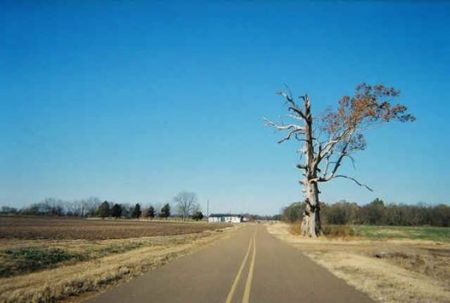
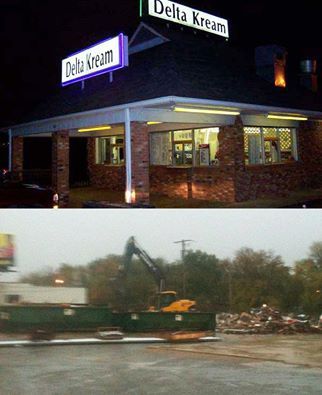
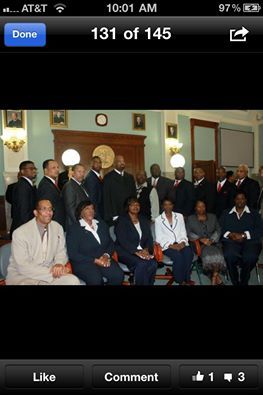
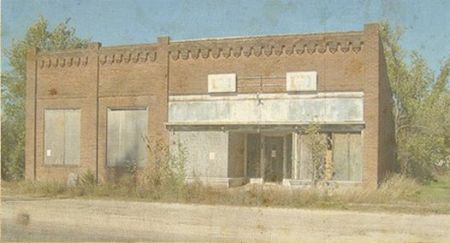
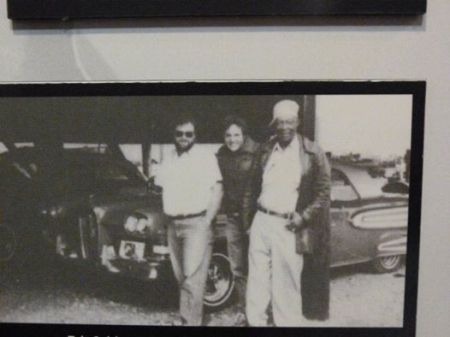

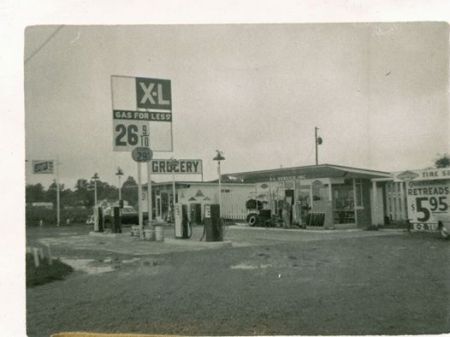
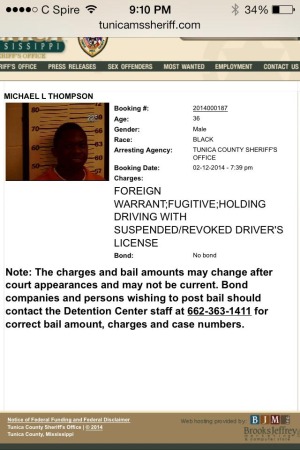
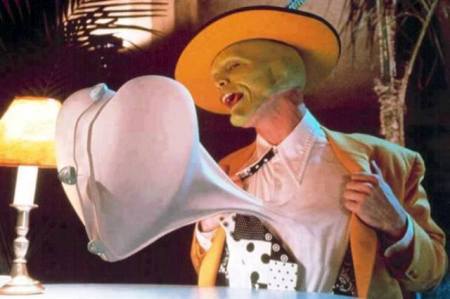







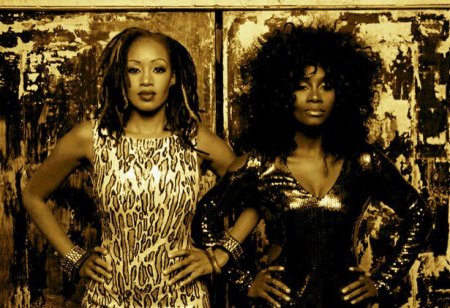
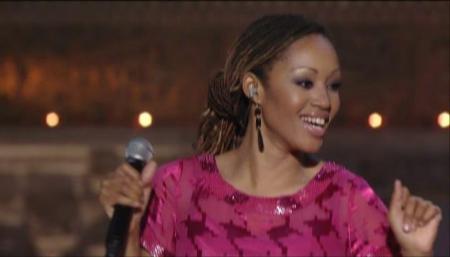
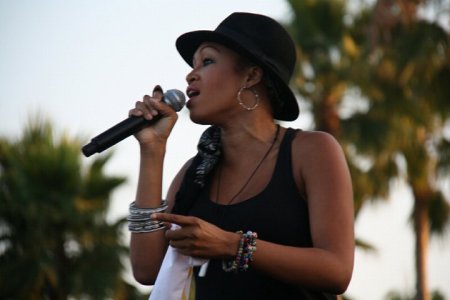
Register for Free to view all photos!
In Memory of Frank Brandon(1965)By Toot is on Classmates.
Register for free to join them.
Already registered? Sign in